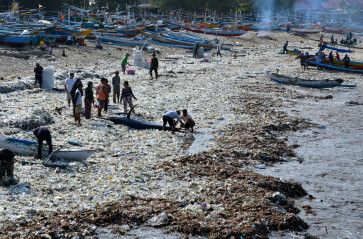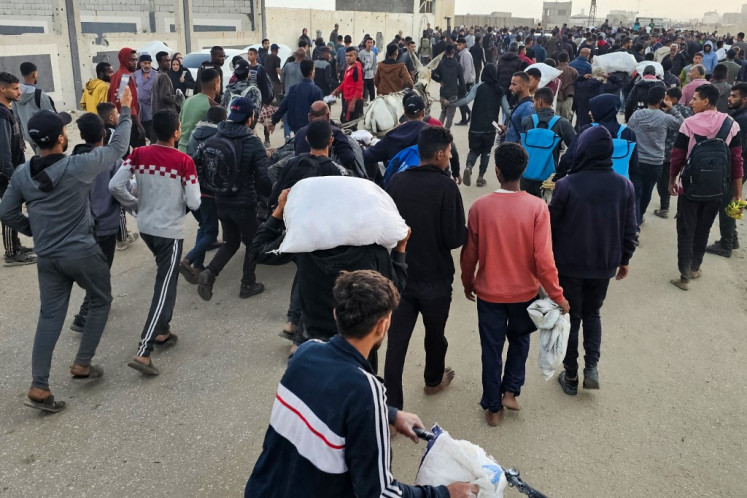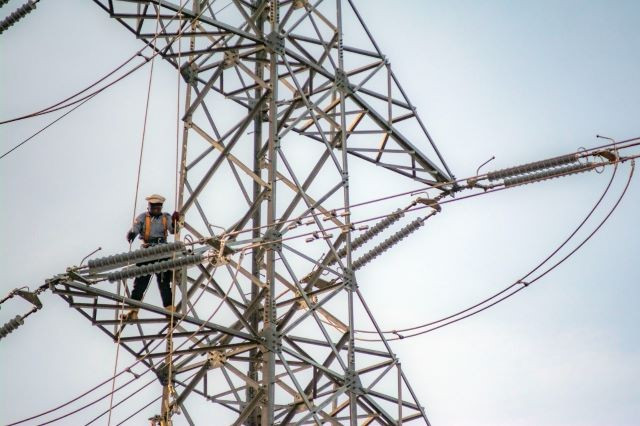Students, teachers prepare for July school reopening
Even as enthusiasm rises among teachers about seeing their students again, various concerns remain over the plan to reopen schools at the start of the new academic year in July.
Change text size
Gift Premium Articles
to Anyone
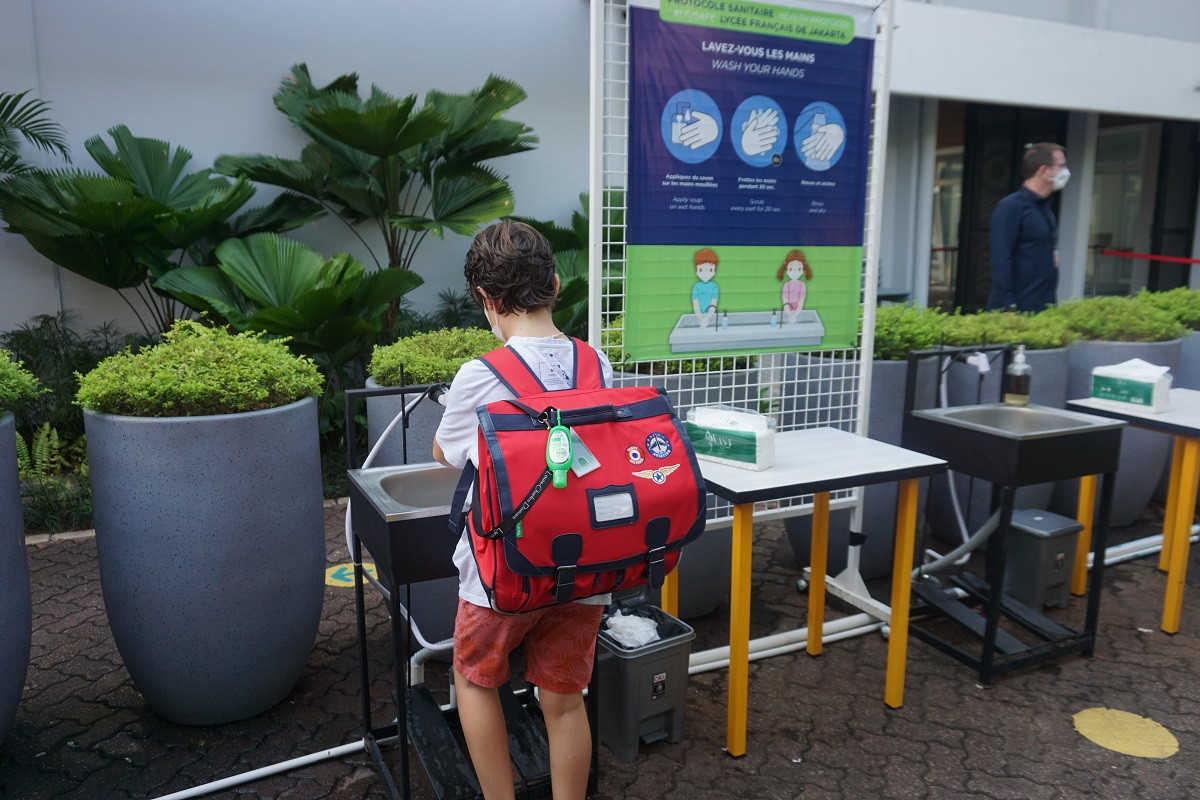
O
ver a year since the COVID-19 pandemic forced 60 million students to study from home, Indonesia’s schools are finally dusting off their classrooms in preparation for the resumption of in-class learning in July, when the next academic year starts.
“The students and teachers, we all want to learn [in person]," Sumarna, the principal of Ulujami 05 elementary school in South Jakarta, told The Jakarta Post on Tuesday.
The school, which is currently being used as an isolation facility for returning mudik (exodus) travelers, is preparing to welcome back around 128 students.
To ensure that the school is safe for reopening in July, Sumarna had to find more cost-effective ways to provide safety and sanitation, with handwashing facilities substituted for big buckets filled with water.
Although the elementary school is close to finishing preparations for the reopening, it has another problem: a lack of teachers, as many have resigned or moved on to other career options.
But the excitement is palpable among the remaining teachers of Ulujami 05, who haven’t seen their students in person for over a year.
Many schools and teachers have had to make do with the bare minimum of online learning, ever since President Joko "Jokowi" Widodo implemented the policy shortly after the first COVID-19 cases were recorded last March.
One of the policy’s biggest problems has been the digital divide. The 2020 Education Statistics report by Statistics Indonesia (BPS) estimates that 40 percent of Indonesian students do not have internet access.
According to the report, this problem is more acute at the elementary level, with close to 65 percent of students unable to access the internet, while only 6 percent of students had access to a computer, the preferred device for online learning.
Read also: Government pushes for school reopening
Uneven access to technology thus raised concerns that remote schooling would only expose the widening rift in education access and quality across the archipelago.
Education, Culture, Research and Technology Minister Nadiem Makarim said that Indonesia was seeing a “worrying” increase in school dropouts, failed subjects and student mental health issues since schools went digital in March 2020.
Lingering concerns
Resuming in-class learning appears to be the most appropriate solution to the pandemic’s impacts on education, at least on first glance. Yet reopening schools is not simple, in terms of either practical matters or restoring schooling as it was prior to the global health crisis.
Late last year, the education ministry set up a publicly accessible self-reporting dashboard to track the safety facilities and health protocols in place at state and private elementary and secondary schools for the planned reopening.
But progress has been at a snail’s pace, with around 45 percent of schools yet to submit their self-assessed readiness in facilitating the “new normal”. Concerns also still linger as to whether the ministry has verified the remaining 55 percent of schools.
Notably, the ministry’s checklist for schools does not provide detailed figures on the quantity of the required safety facilities and sanitation equipment, such as thermometer guns and handwashing facilities.
“This needs to be verified, for fear that a single school might have only one thermo gun. This will potentially cause long lines of students in the morning that will increase the risk of COVID-19 transmission,” coordinator Satriwan Salim of the Education and Teachers Association (P2G) said on Tuesday.
The association has repeatedly cautioned the government about rushing into reopening schools. Despite Jokowi’s target to vaccinate 5 million teachers by June, the P2G says that only 1 million teachers had been inoculated so far.
Read also: Parents, experts urge govt to reconsider 'rushed' school reopenings in July
The rising COVID-19 positivity rate in major cities, some even above 10 percent, has also raised concerns over the feasibility of reopening schools next month.
On the other hand, students have already resumed classroom learning in regions at low risk of COVID-19 transmission, dubbed “green zones”, such as Simeulue regency in Aceh and Sangihe Islands regency in North Sulawesi.
Minister Nadiem said on Monday that roughly 30 percent of schools nationwide had resumed in-class learning.
Satriwan of P2G concedes that the solution is not “one size fits all” for schools across the country, despite the urgency to resume in-person schooling amid fears of learning loss over the last year.
“I implore regions in red zones with a positivity rate above 10 percent don’t rush to reopen [schools],” he said, referring to high-risk COVID-19 regions.
Despite the concerns the P2G has raised, teacher and educational staff director general Iwan Syahrir assured that the government's priority "[remained] ensuring the safety of students, teachers and educational staff ".
“Educational units [schools] are required to fulfill the [ministry’s] checklist prior to starting in-class learning,” he told a press briefing on Wednesday, adding that “the central and regional governments need to continue to supervise the implementation of [in-class learning] amid the pandemic”.
The Post has contacted the ministry for further clarification.
In the face of lingering public concerns and to ensure that schools are compliant with the health and safety rules, Iwan said the ministry had prepared an online platform for the nation’s teachers to share their experience and knowledge. According to him, the platform had been accessed over 100 million times and logged more than 20 million downloads.
School health protocols
In keeping with the Jakarta Health Agency’s health guidelines, schools in the capital city are to apply hybrid learning, alternating between in-class and online learning.
Assisting the agency in this initiative is Lycée Français de Jakarta in Cipete, South Jakarta, which held an open tour for elementary school principals on May 28 to see how they could run in-person classes while adhering to the health protocols.
Read also: Jakarta sets June target for second phase of school reopening trials
The French school was one of the first schools in Jakarta that the agency approved for piloting in-class learning in April, following a vetting process that began last October.
The school provides in-class learning exclusively for grades four and up on Mondays, Wednesdays and Fridays, with Tuesdays and Thursdays reserved for disinfecting its grounds and facilities.
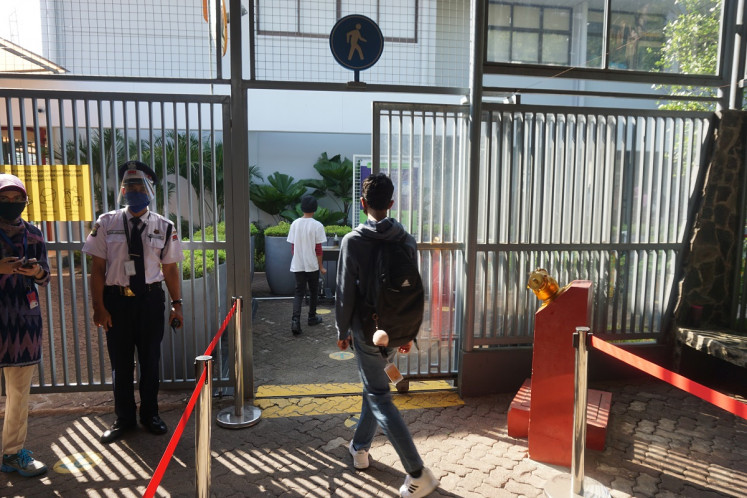
During last Friday’s event, the participating principals took studious notes of the French school’s health and safety setup, including the arrow signs lining the hallways to direct the flow of students.
The school also has designated entry and exit points to prevent crowding in these high-risk areas, and each classroom is disinfected during break times, with a focus on disinfecting high-touch surfaces like door handles and faucets.
“This is our commitment to maintaining the health of all students, teachers and employees in providing the best education during this piloting period,” school secretary Elys Siagian told the Post on Friday.


